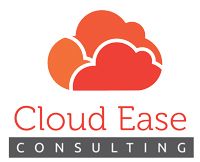The cloud is becoming the new way in the business world with the number of small and large businesses moving IT systems to the cloud increasing every year.
There are though two types of clouds, the public and the private and the choice of cloud varies depending on the size of the organisation and what works best when it comes to integration and security.
Large companies across the globe such as Spotify and Netflix have moved their entire IT system to the public cloud according to Information Week . Spotify discovered that they could perform tasks and receive network services with google data platforms, giving the company a significant advantage as it heightened their performance level. Netflix on the other hand moved to the public cloud to assist with their rapid growth, they needed more storage and the ability to add new features in a cost effective and efficient way.
According to Forbes, on the other side of the spectrum, small business owners are also moving to the cloud for data management as well as every day tasks. The cloud allows small business owners the opportunity to spend less time on crucial but time-consuming tasks such as creating invoices and financial reporting, and more time on the work that matters more to their customers.
When looking at the bigger picture it is obvious that two factors that drive these large and small businesses to cloud computing in the first place and according to Salesforce it is efficiency and cost effectiveness. Here are the top ten benefits that can be achieved from moving to the cloud.
- Flexibility – the cloud allows for operational agility, meaning the ability to grow or shrink with business fluctuation, especially when it comes to demand and growth.
- Disaster recovery – this relates perhaps more to the smaller businesses that don t have the resources if something were to go wrong seriously with their database. Clouds now have cloud-based back with lower cost third party expertise and recovery solutions.
- Automatic software updates – cloud suppliers / applications perform regular software updates, in turn allowing businesses to concentrate on the tasks at hand and not needing to find the cash flow to pay for enhancements.
- Capital (expenditure free) the cloud is pay as you go, therefore it takes away the costs of hardware. Businesses can select the right plan depending on their cash flow and needs.
- Increased collaboration– files can be accessed, shared, and edited by all team members, allowing for greater collaboration.
- Work from anywhere – cloud apps allow businesses to implement systems that allow employees to be more flexible with the way they work.
- Document control – instead of emailing documents back and forth for approval, and creating a number of titles, copies and formats, employees can access the documents through the cloud.
- Security – having the cloud removes the fear of loosing hard drives, laptops and erasing important information. The cloud provides businesses with security and relief as all the data is stored and backed-up on the go.
- Competitiveness – systems and applications allow businesses to work at a faster pace, establishing the opportunity for smaller companies to run alongside the large.
- Environmentally friendly – With global warming on the incline, there is no room for energy waste. The clouds server fluctuates depending on what you need; therefore, no excess energy is being used.
Can these benefits assist your business? Need help moving to the cloud? Get in touch.

